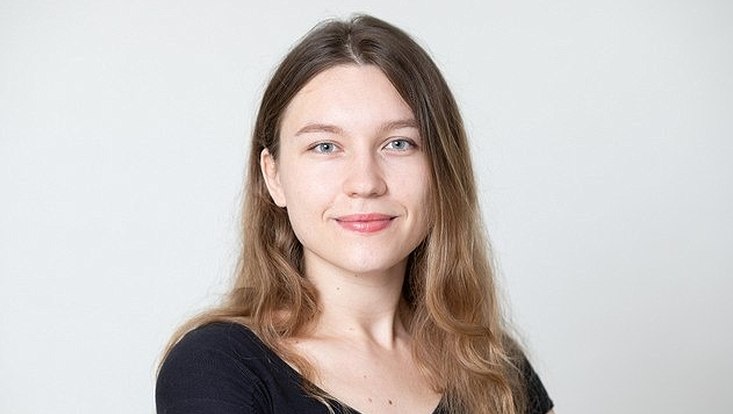Kateryna Radchenko Serdula
13 June 2023

Photo: DESY/ Marta Mayer
Kateryna Radchenko Serdula was born in Ukraine but, up until her recent move to Hamburg, she had been living in Spain since she was two years old. In the summer of 2022, she completed her Master’s degree on particle physics at the Institute of Theoretical Physics in Madrid. The aim of her thesis was to explore the experimental implications of an extended Higgs sector. In particular, Kateryna studied the phenomenology of Higgs pair production at the high luminosity phase of the LHC in the framework of the Two Higgs doublet model.
What is the topic of your research?
I am a member of the QU Theory Higgs working group under the supervision of Prof. Georg Weiglein. I study the interplay of Higgs physics and the thermal evolution of the universe. Through my research, I aim to investigate how distinct theoretical models with extra scalars could result in diverse thermal histories of the universe and, most importantly, how these can be tested at particle colliders and/or gravitational wave experiments. Whatever the outcome of present and future experiments is, we need to understand what it tells us about the building blocks of nature and their properties. We also need to be aware of the limitations of our knowledge and be able to disentangle the bias and possible sources of error when interpreting experimental results. Working in phenomenological aspects of different models needs both creativity and a rigorous approach.
What fascinates you about your research focus?
The aspect I find most rewarding in fundamental physics research is the continuous opportunity to expand my knowledge and the possibility to admire the beauty of nature. The study of fundamental questions provides me with a unique perspective for addressing daily challenges. Moreover, I believe that pursuing a scientific career yields benefits that transcend your curriculum. The critical and analytical thinking methodologies that are inherent to the scientific method are also a fundamental pillar for personal development and I consider them an essential component of a modern society. In terms of my own research, I find it thrilling to think about solutions to the open questions of the current understanding of the laws of nature. I see it as trying to solve a puzzle by connecting different pieces. I also like the phenomenological aspect of being able to test a theoretical prediction by means of different experiments.
What do you like about the cluster Quantum Universe?
Being part of a research cluster provides many opportunities for networking and collaboration, as well as access to resources and expertise that might not be available to researches working on their own. I find the regular meetings valuable platforms for sharing research findings, exchanging ideas and getting feedback from others in the field.
Participating in the QU Research School can be beneficial for PhD students, since it provides a supportive community of peers who are working on similar topics and who face similar challenges. This helps students feel less isolated and provides opportunities for collaborations and the chance to learn from others which could be useful both during their PhD and in their future careers.
What do you like to do in your free time?
What I enjoy the most during my free time is traveling, learning new cultures and languages. However, some of the things I get the chance to do more frequently are cooking, doing yoga, playing board games and painting. I also like trying different coffee shops in Hamburg.
